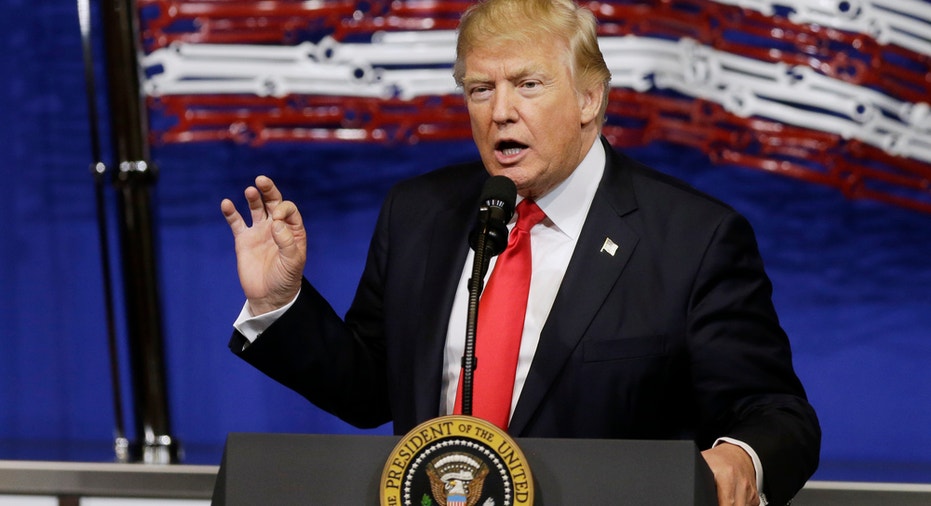Trump Ramps Up Pressure on WTO

The Trump administration is expanding its re-examination of longstanding American trade policy, launching a broad "performance review" of the World Trade Organization with an eye toward attacking what officials call "structural problems" at the global body.
"There's an institutional bias on their part toward the exporters rather than toward the people that are being beleaguered by inappropriate imports," Commerce Secretary Wilbur Ross told reporters Friday in announcing the study.
As part of his campaign to show that he has laid the foundation for a new "America First" trade policy during his first 100 days in office, President Donald Trump plans to sign Saturday -- his 100th day in the White House -- an executive order launching the 180-day review of the WTO and other trade agreements.
The move comes two days after Mr. Trump said he was strongly considering signing an order Saturday withdrawing from the North American Free Trade Agreement, but changed his mind after calls from his Mexican and Canadian counterparts, and will instead seek a renegotiation. Mr. Trump also this week said he wanted to renegotiate or terminate a free-trade agreement with South Korea.
The pending WTO report is the latest in a growing list of studies that the White House launched in recent weeks as officials vow to take a hard look at decades of bipartisan free-trade agreements. For all of Mr. Trump's harsh rhetoric about globalization, he has so far actually taken little action to change the course of American policy. And it's still unclear whether the WTO probe -- or any of the other reviews on trade deficits, China, steel, or aluminum -- will yield any concrete results.
But Trump aides say he is laying the groundwork for the prospects of dramatic change. And the potential challenge to the WTO could have the most significant repercussions.
In a mid-April speech, Mr. Trump branded the WTO as "another one of our disasters," and during the presidential campaign he raised the prospect of the U.S. pulling out of the global body created in 1995.
Mr. Ross was asked repeatedly whether the administration was considering following up on that threat, and declined to answer directly. "I didn't say it was on or off the table," he said, though he suggested the administration's preference was to try to force change at the WTO, rather than to abandon it. "There's always the potential for modifying the rules," he said.
Mr. Ross listed a number of the administration's concerns with the WTO, starting with the fact that the U.S. has trade deficits with many member countries -- which Trump aides say is a problem, but most economists dismiss as irrelevant to gauging the country's commercial well-being.
WTO officials have been hesitant to confront the Trump administration directly over its complaints. But the organization's leaders have become increasingly outspoken in defending its role overseeing the global trading system, in anticipation of a harder Washington line.
"I think that a dispassionate look at the record shows that the organization is vital -- and I see no reason to believe that this is going to change in the near future," WTO director-general Roberto Azevedo said in speech in Geneva Friday titled "The Future of the WTO." "Almost none of the global trade challenges we face today would be easier to solve outside of the multilateral system," Mr. Azevdeo said "In fact, the opposite is the case."



















